So That Peace Might – Indeed - Become A Culture
- Par Kimeng Hilton
- 29 Nov 2024 08:42
- 0 Likes
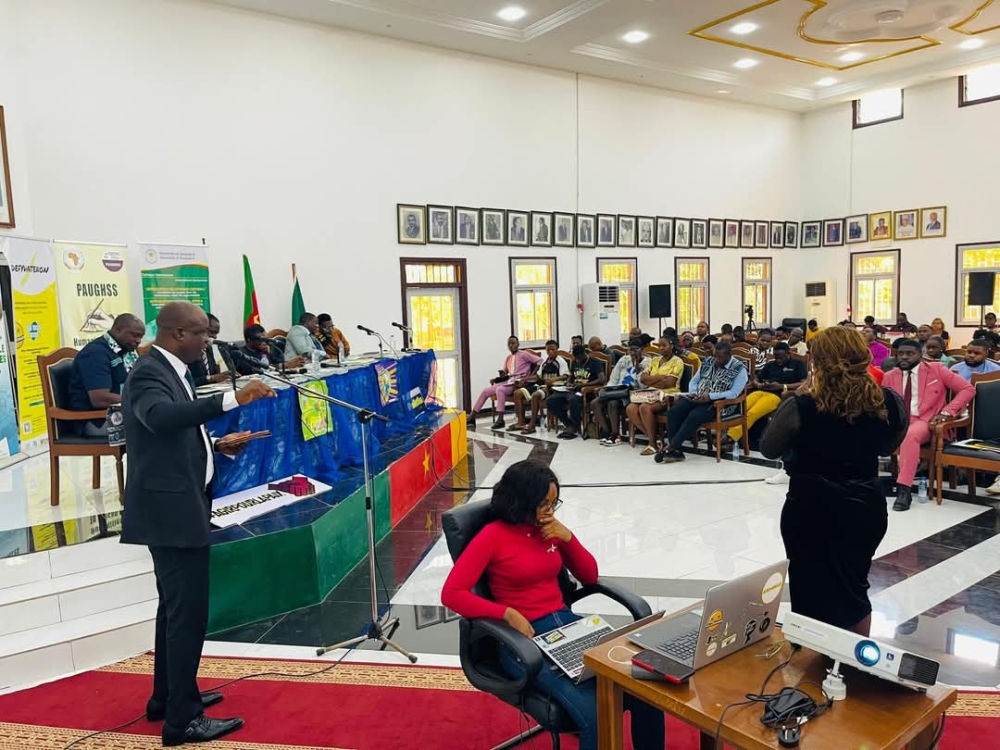
Civic Watch, Defyhatenow Initiative and the Pan-African University on November 28, 2024 in Yaounde began holding two days of strategic discussions. To underscore advocacy for policies and programmes that support peacebuilding amongst communities.
Peace is everyone’s desire and quest. For, without peace, man cannot do much. Yet, peace amongst peoples and nations of the world has remained elusive. Year after year. Ironically, the coming of each new year tends to be accompanied by new conflicts in different parts of the world. Making peace the more elusive. Though so much desired. And hoped for by all.
Conflicts, Conflicts
Over the years, international conflicts have seen the deterioration of trust and social unity amongst the countries involved. This has not only resulted in suspicion and discord, but also hindered the formation of collaborative bases required for peaceful societies. Conflicts have caused international refugee crises, displacements and trauma to individuals and communities, impairing their capacity to engage in peacebuilding initiatives.
Strategic Discussion
Despite worldwide attempts, conflicts persist, and violence remains widespread in many countries. There is therefore is an urgent need to redouble efforts to respond to conflicts by addressing their underlying factors in order to promote a culture of peace. This is why a two-day strategic discussion on “Cultivating a culture of peace” began holding on the outskirts of the Cameroonian capital, Yaounde on November 28, 2024.
Joint Organisation
It is organised by the Pan-African University Institute of Governance, Humanities and Social Sciences, PAUGHSS. And Civic Watch through Defyhatenow Initiative in Cameroon. To mark this year’s United Nations International Day of Peace – which usually holds on September 21. The conference is hosted by the University of Yaounde II in its Soa main campus.
New Threats, New Challenges
“At the end of the Cold War, the African Union put in place the Peace and Security Architecture to prevent conflicts and guarantee stability. But the mechanism has run into problems because of the emergence of new threats that did not exist at the time the architecture was put in place. For example, the AU peace and security mechanism focused on combatting inter-tribal conflicts within countries. But when terrorism arrived, it could not be managed like internal conflicts,” commented Prof. Vincent Ntuda Ebode of the University of Yaounde II, Soa, in his inaugural lecture titled, “Conflicts and regional stability.”
It Transcends Borders
“Terrorism is not limited to sub-regions like inter-community conflicts because the threat transcends boundaries. As a result, the AU mechanism for tackling conflicts was shoved aside initiatives like G5 Sahel, which does not conform with the AU’s Peace and Security Architecture. These new African peace and security instruments try to gain legitimacy, but on the ground, normalcy is yet to return - perhaps because the mechanisms were not conceived by Africans,” Prof. Ebode suggested.
Teach Peace Values
“It is undeniable that in order to promote peace today, we must teach values such as dialogue, diversity, social cohesion... During the two days of discussions, we hope to imbibe in young students the idea that these values will lay the foundation for the construction of Africa and the development of African nations.
The Same Objective - Peacebuilding
“However, there are challenges young people face like division, inter-tribal conflicts… which can only be tackled by teaching peace values. This is the raison d'être of the conference, which brings together students of various backgrounds from all over Africa - with different cultures, but who all seek the same objective for the continent - peacebuilding,” a representative of the Pan-African University said.
Culture Of Peace
“There are different and varying factors that contribute to peace. But the construction or cultivation of a culture of peace begins from simple things like promoting tolerance, empathy, compassion… When they are absent, we cannot fully enjoy peace in our communities. Peace is not just the absence of war. We should construct peace through interpersonal relationships and sharing experiences from different parts of Africa,” said Ngala Desmond Ngala, Defyhatenow Country Project Manager, and founder of Civic Watch. He was referring to students from over 20 African countries taking part in the peacebuilding conference organised by Pan-African University and Civic Watch.
Exporting, Importing Peace Models
“The students are telling us what peace means to them e.g. Boma and Gachacha traditional court sessions. At the end, we might export the Cameroonian peace construction experience and import other examples from Africa,” Ngala noted. He acknowledged challenges in inculcating a peace mindset amongst young African university students.
Globalised, Complex World
“The world has become so globalised, making it difficult to talk peace within a very unique or specific area. New technology has shaped the way people think and see the world. Also, governance has been a problem in many African countries. Bad governance is an ingredient for violence and wars in Africa. Moreover, more and more young people are not invited to the dialogue table when questions of peace are discussed. We therefore appeal for young people to be included in peace-making efforts because conflict affects and touches them the more,” Ngala Desmond emphasized.
Event Objectives
According to the organisers, the conference seeks to raise awareness on the significance of cultivating a culture of peace in Cameroon and Africa. Reiterate the promotion of dialogue and understanding among diverse groups. Encourage youth to take action for peace in their communities and in governance. And stress advocacy for policies and programmes that support peacebuilding amongst communities.
Expected Outcomes
The event is expected to result in increased awareness on the importance of cultivating a culture of peace. Exchange of ideas on the best approaches to sustainable peace. Stepped-up tolerance amongst diverse cultures in Cameroon and Africa. And to raise the level of advocacy for policies that support peacebuilding, understanding and tolerance at all levels of the society.
Committed African Youth
The African Union is well represented in the Pan-African University Institute of Governance, Humanities and Social Sciences by young scholars. Who are committed to reverberating the call for peace in Cameroon and the continent. The theme of the 2024 United Nations International Day of Peace resonates with PAUGHSS' objective of nurturing scholars to facilitate the integration of Africa through peaceful socio-economic pathways. While Defyhatenow’s commitment to building communities that embrace diverse cultures to peacefully co-exist significantly fuels the two parties to collaborate in commemorating UN Day of Peace - though late.
Thanks To UN
The United ...
Cet article complet est réservé aux abonnés
Déjà abonné ? Identifiez-vous >
Accédez en illimité à Cameroon Tribune Digital à partir de 26250 FCFA
Je M'abonne1 minute suffit pour vous abonner à Cameroon Tribune Digital !
- Votre numéro spécial cameroon-tribune en version numérique
- Des encarts
- Des appels d'offres exclusives
- D'avant-première (accès 24h avant la publication)
- Des éditions consultables sur tous supports (smartphone, tablettes, PC)






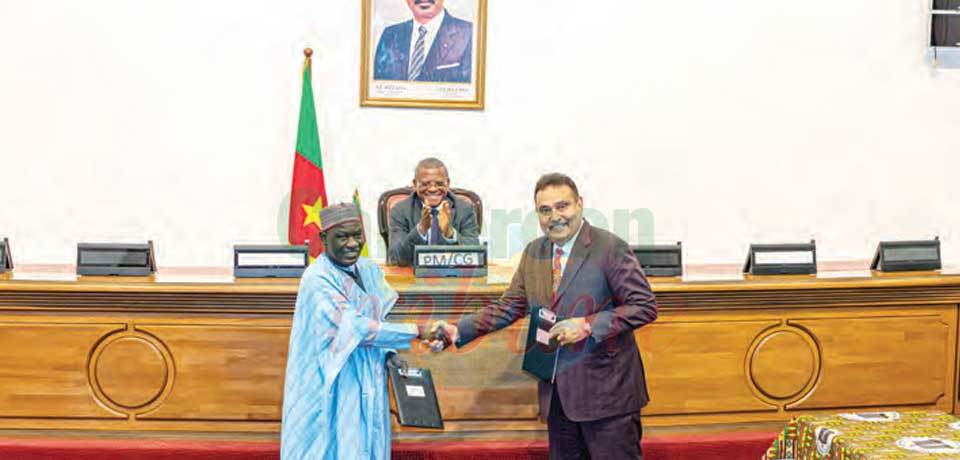
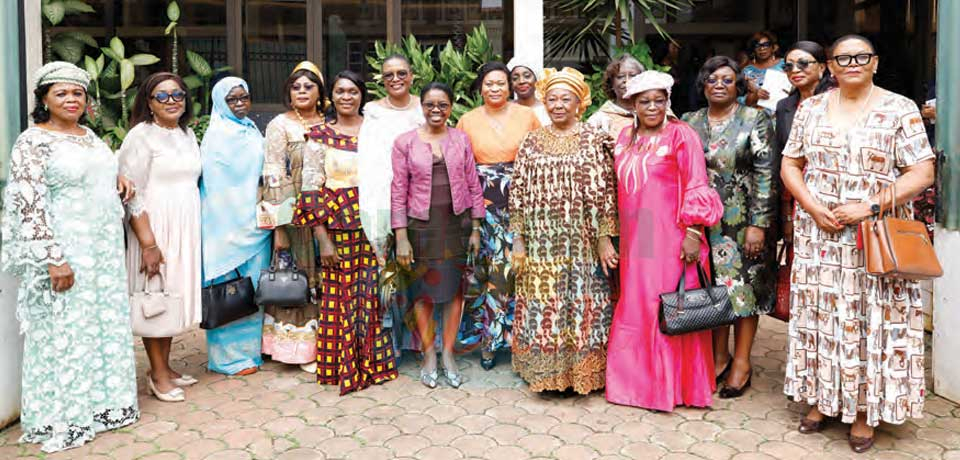
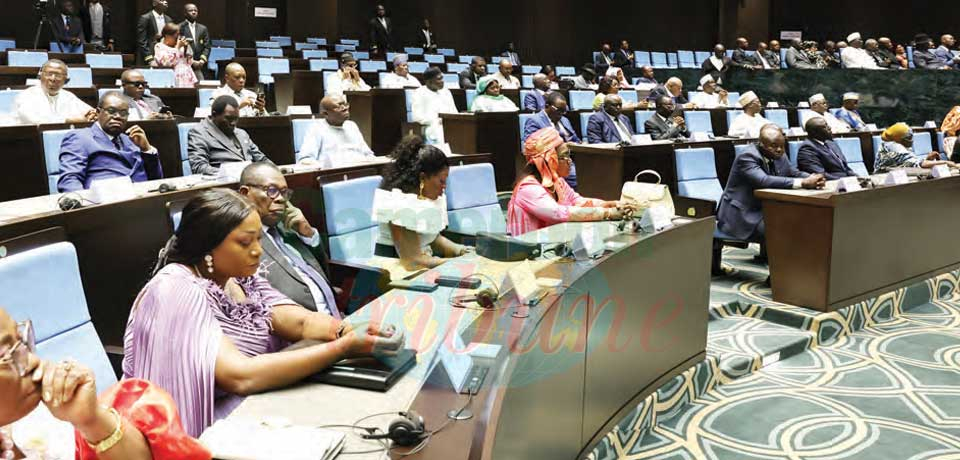
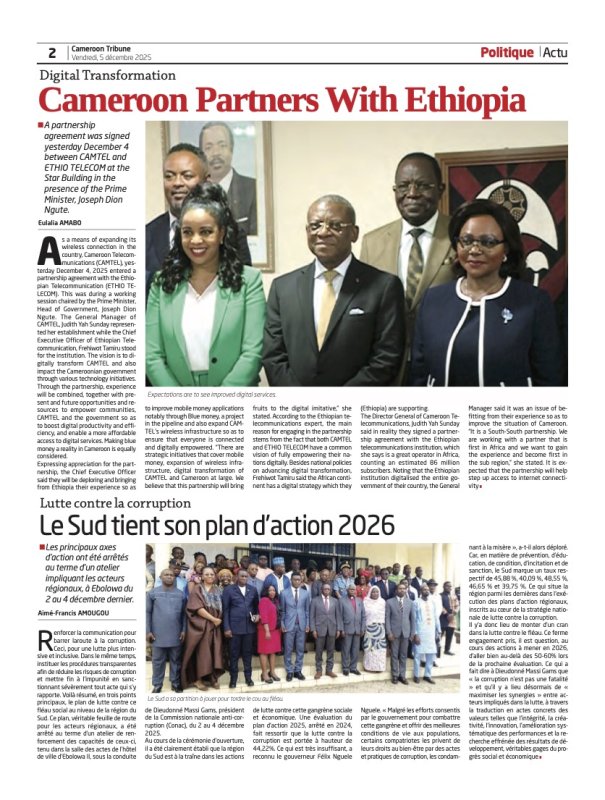




Commentaires